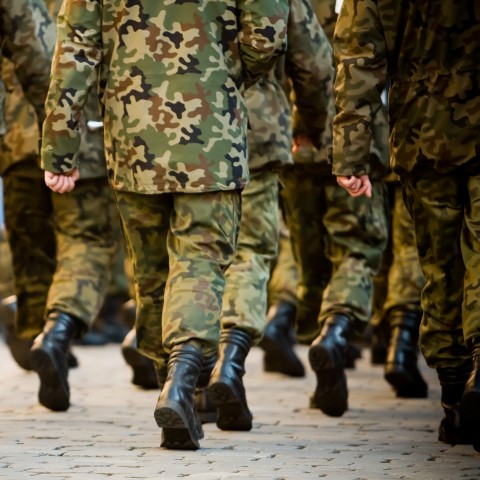
When was the last time you thought something was unfair? How did you react?
Most people see fairness and justice as necessary elements of daily life, especially at the governmental level. But these elements don’t always exist or shine through the clouds of politics!
The 2012-2013 Egyptian protests marked a period of immense dissatisfaction toward Egypt’s government and leaders of the time. In this article, you’ll learn about the events leading up to the June 30 uprising in Egypt, the انقلاب (enqelāb), or “coup,” that brought it to an end, and how the country commemorates these events.
Looking at this important, and quite recent, moment in Egypt’s history will help you better understand its culture and values.
Let’s get started.

1. What was the June 30 Uprising?

Egypt’s 2013 revolution, or ثورة (sawrah), was the result of widespread political unrest that began in early 2011. This was the year that the country’s corrupt رئيس (raʾīs), or “president,” Hosni Mubarak, resigned after pressure from an angered population. This resignation sparked great instability, and the next two years saw much political machination among various groups trying to grab power. Most noteworthy of these groups were the Muslim Brotherhood and former members of the National Democratic Party.
In 2012, Mohamed Morsi was elected as president, largely due to the influence of the Muslim Brotherhood on the military. It’s important to note that a couple of months prior to this, SCAF (Supreme Council of the Armed Forces) was given great control over the military. It didn’t take long for Egyptians to begin protesting again, in what came to be called the 2012-13 Egyptian protests.
For this conflict in Egypt, 2013 was a big year. Tensions heightened for several days in late June, and on June 30, 2013, Egyptians—both those for and those against Morsi—began marching through Cairo and Alexandria. Close to midnight, the Muslim Brotherhood’s headquarters was attacked by protesters, and eventually torched and looted.
Protests continued for several days, which led General el-Sisi to perform a coup d’etat. Egypt’s 2013 protests started to die down following the coup, and both Morsi and leaders of the Muslim Brotherhood were arrested. Additionally, Morsi was forced to يستقيل (yestaqīl), or “resign,” and Adly Mansour took his place as مؤقت (moʾaqqat), or “temporary,” president.
- → Learn the Top 5 Important Calendar Dates in Egypt with us, and explore the Top 5 Things You Need to Know About Egyptian Society.
2. How Do Egyptians Commemorate the Uprising?

There are no specific traditions for commemorating the June 30 uprising in Egypt, though this is a day for Egyptians to reflect on the events that took place.
Newspapers and other forms of media may publish special pieces concerning the political unrest in Egypt in 2013, oftentimes giving a recap of the most important events. Considering the heavy casualties and bitter feelings associated with the uprising, this is a time of solemn contemplation and an opportunity to look ahead to a brighter future.
- → See our vocabulary list on the Top Ways to Practice Your Arabic Reading Skills so you can check out some Arabic articles on the topic!
3. Adly Mansour

While in office, Mansour proposed amendments to Egypt’s constitution at the time, chose Mohammed ElBaradei as his Vice President, and gave Hazem el-Biblawi the position of Prime Minister.
Despite his strong leadership as interim president, Mansour decided not to run for president again after his term was over, and instead returned to his post on the constitutional court. He was replaced by former وزير الدفاع (wazīr el-defāʿ), or “Defence Minister,” Abdel Fattah el-Sisi in June 2014. Sisi is still Egypt’s president today, and continues to participate in a variety of governmental bodies.
4. Vocab for Talking About the June 30 Uprising

Ready to review some of the vocabulary words from this article? Here’s a quick table for you!
| Arabic | Romanization | English | Part of Speech + Gender |
| رئيس | raʾīs | “president” | N. masc |
| مليون | melyūn | “one million” | N. masc |
| جيش | ǧayš | “army” | N. masc |
| ثورة | sawrah | “revolution” | N. fem |
| وزير الدفاع | wazīr el-defāʿ | “Defence Minister” | N. masc |
| متظاهر | motaẓāher | “protester” | N. masc |
| انقلاب | enqelāb | “coup” | N. masc |
| يستقيل | yestaqīl | “resign” | V. |
| مؤقت | moʾaqqat | “temporary” | Adj. |
| حزب | ḥezb | “party” | N. masc |
| ينتخب | yenteḫeb | “elect” | V. |
If you want to hear the pronunciation of each word, visit our Arabic June 30 Uprising vocabulary list.
Final Thoughts
For Egypt, June 30, 2013, marked a major political turning point. We hope you learned something new today about this series of events and their impact on the country as a whole.
What were some of the most defining moments in your country’s history? Tell us about them in the comments!
If you want more information on Arabic culture and the Arabic language, ArabicPod101.com has several free resources for you, straight from our blog:
- UAE Etiquette: Body Language in Arab Culture
- Give and Take: Secrets of Gift-Giving in Arabic Cultures
- A Handshake is Worth 1000 Words: Body Language in Dubai Business Culture
- 14 Unique and Untranslatable Arabic Words and Expressions
- When is Eid al-Adha in Egypt? – Islamic Holiday Guide
This only scratches the surface of everything ArabicPod101.com has to offer the aspiring Arabic learner. Create your free lifetime account today to make the most of your study time, or upgrade to our Premium or Premium PLUS plans for access to exclusive content and lessons.
Stay safe out there, and happy learning!










